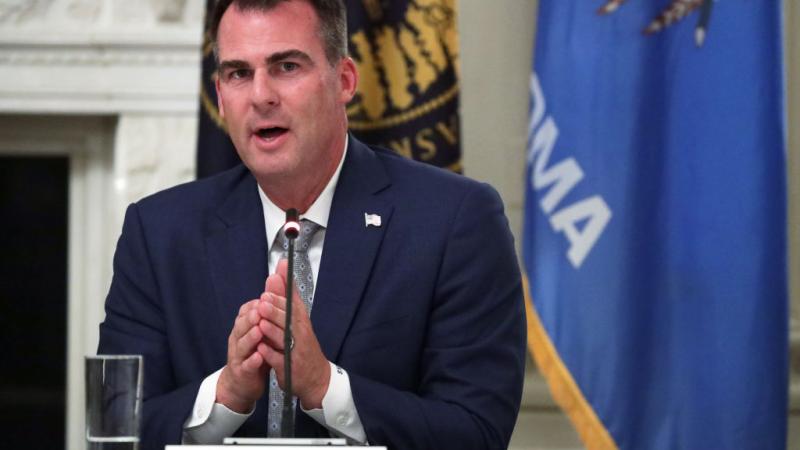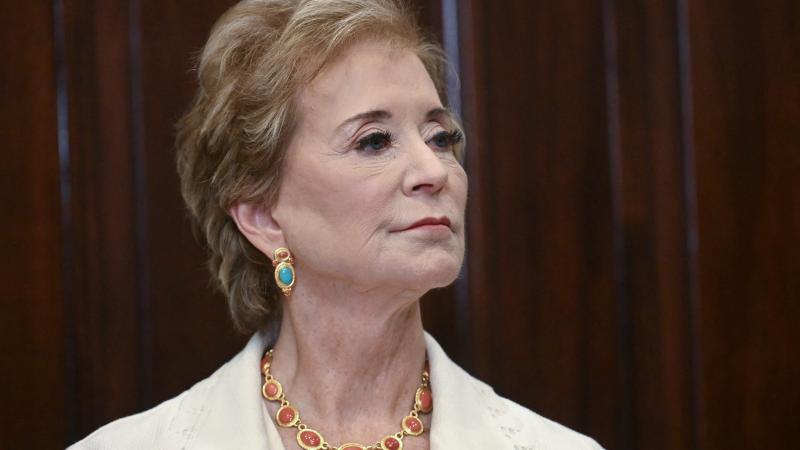Mother forced to pay school district for challenging spiritual ceremonies in class, assembly
Appeals court implies any indigenous religious ceremony can be legally performed in public schools as "cultural" demonstration because it's not trying to convert students.
Parents who object to the incorporation of trendy spiritual practices into their children's public schools may want to think twice about suing on religious freedom grounds, at least north of the border.
The British Columbia Court of Appeals, the Canadian province's highest court, ordered mother Candice Servatius to pay the Alberni School District's legal fees as a result of her unsuccessful litigation.
She had alleged the district forced her daughter to participate in an indigenous "cleansing ritual" and subjected her children to a school-sponsored "Aboriginal" prayer that violated the family's Christian beliefs. Both parties appealed the trial decision in favor of the district, which argued it shouldn't have to pay its own legal costs.
The appeals court framed the indigenous demonstrations in schools as a response to Canada's "historical mistreatment of Indigenous people." A third of the Vancouver Island district's students are indigenous, and it sits on "traditional Nuu-chah-nulth territories."
The ruling cited the Truth and Reconciliation Commission's call for governments to "integrate the history and contributions of Indigenous peoples" in school curricula, but also implied that any indigenous religious ceremony can be legally performed in schools as a cultural demonstration.
The three-judge panel overruled the trial court's finding that Servatius had "limited means," saying she waited until appeal to disclose "her complaint was funded by a special interest group," the Justice Centre for Constitutional Freedoms, which litigates for constitutional freedoms under the Canadian Charter of Rights and Freedoms.
The case was "not a matter of general public interest" as the trial court deemed, and "was not advanced as an ordinary judicial review proceeding," the Monday ruling said in explaining Servatius' liability.
The mother sought "untenable broad prohibitory relief" against "cultural" demonstrations in schools, "and her funding put her on an uneven footing with the School District."
JCCF rebutted the appeals court's claim that it had agreed to "use its resources to indemnify Ms. Servatius for any award of costs against her" by taking her case in 2016. The group said it would accept donations to help cover her costs.
"From the very beginning of this litigation," Servatius told the court "she was fine with aboriginal practices and culture being taught in school, JCCF said in a statement after the ruling.
But "imposing supernatural or spiritual practices on public school children without parental notification and parental consent, and without even the right for students to opt out is a matter of substantial public concern," the group said.
It cited a letter from the principal, which Servatius didn't receive in time to object, that said students would hold cedar branches and be "fanned" by smoke from a sage-burning ritual known as "smudging," led by a Nuu-chah-nulth member. Her daughter's teacher testified that parents didn't require notice of the ceremony.
The Sept. 15, 2015 rituals will "cleanse our own spirits to allow GREAT new experiences to occur for all of us" and cleanse the classroom and furniture to release "previous energy" from accidents, bullying and "sad circumstances," the principal's letter said.
It was drafted by a Nuu-chah-nulth Tribal Council (NTC) school liaison but was apparently silent on "exactly what form the demonstration would take" before the principal modified it, the ruling said.
JCCF President John Carpay told Just the News the appeals court missed the point of the evidence. The school liaison testified that smudgings "were actual supernatural events performed for the express purpose of interacting with the unseen world," and that she did them in her personal life "to communicate with spirits and ancestors and the creator of things."
The ruling's opening summary also made a "demonstrably false" claim that Servatius sought a ban on "Indigenous cultural events in schools," which is contradicted by other parts of the ruling, Carpay said. This "gross mischaracterization of the facts" could lead the public to think Servatius is "an anti-aboriginal bigot," he wrote in an email.
The appeals court is being disingenuous when it claims Servatius hid the source of her lawsuit funding, Carpay said. Her affidavit "indicated truthfully that she is a person of limited means who cannot afford to pay for litigation costs," but JCCF has "publicly and repeatedly" made clear its representation is always pro bono.
"The lower court was not aware that the Justice Centre had committed to assist Ms. Servatius in fundraising, in the event that cost were awarded against her," and never asked, he said. JCCF "candidly and forthrightly" told the appeals court about the provision when it asked. Carpay told the Calgary Herald it was reviewing its options for appeal.
NTC President Judith Sayers told CTV News that Servatius had tried to "impose her own beliefs on what an Indigenous person is experiencing when a demonstration occurs" and thanked the court for stopping her.
"Public schools were never meant to undermine the rights of parents," Liberty Counsel Chairman Mat Staver, whose group also argues religious freedom cases, wrote in an email to Just the News. "This case should be overturned because the result here will embolden the already out of control education system to come between parents and their children."
Another public interest law firm that defends religious freedom told Just the News that stateside plaintiffs were unlikely to be stuck with the victor's legal bill in U.S. courts hearing constitutional challenges, because U.S. law only provides for victorious plaintiffs, not governments, to recoup legal fees.
Servatius and the district disagreed over the nature of the indigenous ceremonies, the level of student participation and whether students could leave the classroom during the smudging. In January 2016, using "province-wide funding for artistic activities in schools," the school brought in a "hoop dancer" who said a prayer while performing, the appeals ruling said.
The trial court rejected the sworn testimony of Servatius' daughter, who claimed students' desks and backpacks were smudged, the ceremony was so smoky "it was getting hard to breathe," and that some students were allowed to leave, but not her.
Other witnesses claimed only the walls were lightly smudged, and her teacher said the principal's letter to families was "wholly inaccurate" about what would happen. (JCCF said the students' backpacks were stored along a wall.)
Student participation was limited to "observing, listening, and taking in the smell of the burning sage," the trial court found, holding that the daughter also made an "untrue embellishment" that "she was told to bow her head and close her eyes" during the hoop dancer's prayer.
Servatius changed her argument on appeal to say that "merely being in the same room and watching it amounted to forced participation in the religious ceremony," a view affirmed by her pastor, according to the appeals court.
The panel sided with indigenous academics who testified that their school performances are "public practices for the purpose of community building" and differ from their private ceremonies, which in any case cannot be accurately described by the "Western" concept of "religion."
No evidence suggests the smudging "sought to convert someone" or that either ceremony "had a goal to proselytize or to impose [the performers'] spiritual beliefs or practices on others present," the appeals court found.
The ruling simply dismisses "the religious or spiritual nature of the ceremony" that "involved and embraced everyone present in the classroom" regardless of whether they held branches or were personally smudged, Carpay said.
















